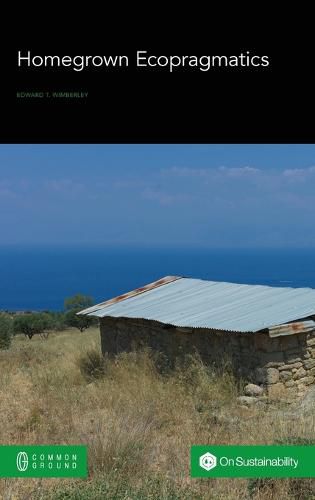Readings Newsletter
Become a Readings Member to make your shopping experience even easier.
Sign in or sign up for free!
You’re not far away from qualifying for FREE standard shipping within Australia
You’ve qualified for FREE standard shipping within Australia
The cart is loading…






This title is printed to order. This book may have been self-published. If so, we cannot guarantee the quality of the content. In the main most books will have gone through the editing process however some may not. We therefore suggest that you be aware of this before ordering this book. If in doubt check either the author or publisher’s details as we are unable to accept any returns unless they are faulty. Please contact us if you have any questions.
Homegrown Ecopragmatics presents a set of case studies designed to demonstrate how ecopragmatic approaches to solving local environmental problems can be applied. It does so by developing the principles developed in Ecopragmatics (2012), illustrating them through a set of case studies involving solar energy policy, controversies over foresting and grazing rights in Eastern Oregon, water rights, water management and industrial pollution along the Brazos River watershed in Texas, and the mining of the final phosphate reserves in Florida. Each case is developed by developing a background chapter on the larger policy context of the environmental case followed immediately by a specific case controversy involving local groups seeking to locally resolve environmental issues. Cases are developed to highlight the interest of stakeholders and demonstrate how ecopragmatic principles may be employed to resolve local conflict. In three of the cases, ecopragmatic principles proved useful in resolving policy issues. However, in the final case involving phosphate mining, the limitations of ecopragmatic methods is explored to illustrate the circumstances under which consensus and stakeholder involvement must be replaced with a more confrontational approach. These cases have been successfully used in policy classes and based upon the success with which they have been received, they are now more broadly available.
$9.00 standard shipping within Australia
FREE standard shipping within Australia for orders over $100.00
Express & International shipping calculated at checkout
This title is printed to order. This book may have been self-published. If so, we cannot guarantee the quality of the content. In the main most books will have gone through the editing process however some may not. We therefore suggest that you be aware of this before ordering this book. If in doubt check either the author or publisher’s details as we are unable to accept any returns unless they are faulty. Please contact us if you have any questions.
Homegrown Ecopragmatics presents a set of case studies designed to demonstrate how ecopragmatic approaches to solving local environmental problems can be applied. It does so by developing the principles developed in Ecopragmatics (2012), illustrating them through a set of case studies involving solar energy policy, controversies over foresting and grazing rights in Eastern Oregon, water rights, water management and industrial pollution along the Brazos River watershed in Texas, and the mining of the final phosphate reserves in Florida. Each case is developed by developing a background chapter on the larger policy context of the environmental case followed immediately by a specific case controversy involving local groups seeking to locally resolve environmental issues. Cases are developed to highlight the interest of stakeholders and demonstrate how ecopragmatic principles may be employed to resolve local conflict. In three of the cases, ecopragmatic principles proved useful in resolving policy issues. However, in the final case involving phosphate mining, the limitations of ecopragmatic methods is explored to illustrate the circumstances under which consensus and stakeholder involvement must be replaced with a more confrontational approach. These cases have been successfully used in policy classes and based upon the success with which they have been received, they are now more broadly available.